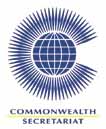- Production and Marketing Constraints and Problems of Ginger and Turmeric.
- Farmers Response on TV Programme on Agriculture.
- Effects and Problems of Crop Diversification in the Food Crop Sector-Changing farming system in North western province.
- Performance Evaluation of Farmer Organaization.
- Performance Evaluation of Farmers Bank.
- Structure Conduct and Performance of Rice Milling Industry in Polonnaruwa and Hambantota districts.
- An Overall Assessment of the Agricultural Marketing Systems in Northern Province of Sri Lanka.
- Analysis of Marketing Margins of Potato and Red onion.
- Crop Production Performance in the Anicut Schemes in Walawe Basin.
- Adoption of Drip Irrigation systems: Current Status problems and Options.
- Reasons for Underutilization of Agricultural Lands in the Northern province.
- Pesticide Usage and the Current Regulatory Framework in Sri Lanka.
- Governance of State Land in the Context of Decentralization: A Case study in Hambanthota District.
- “Dayata Kirula” 2012 Konakubukwewa Village.
Completed Research Projects 2011
At a time when the attention of the scientific community was focused on technological advances in agriculture based primarily on the development of high yielding varieties, it came to be perceived that social, economic and institutional factors required equal attention if such technological advances were to serve farmers and consumers alike over the long term. The HARTI was established in order to generate a range of policy analysis that would cover those key determinants of human and resource development in the agrarian sector. The institute was established in 1972 as a statutory board in collaboration with the UNDP/FAO, which functions under the Ministry of Agriculture.
It has developed into the premier national Institute in the field of socio-economic research relating to the use of land and water in Sri Lanka and has also developed the requisite skills and infrastructure for providing relevant training to farmers, field workers and managers in both the state and non-state sectors. The name of the Institute was changed as Hector Kobbekaduwa Agrarian Research and Training Institute in February 1995.
Latest Publications
Socio-Economic Condition of Diary Industry in Mahaweli H Area
By Sagarika Hitihamu and S.Epasinghe HARTI Research Rep ...
VIABILITY OF CONTROLLED ENVIRONMENTAL AGRICULTURE FOR VEGETABLE FARMERS IN SRI LANKA
By Sharmini.K.Kumara,Renuka Weerakkody and Epasinghe S. & ...
AGRICULTURAL FORWARD CONTRACTS AS PRE-HARVEST COMMODITY MARKETING: PROBLEMS AND PROSPECTS
By Nalaka Wijesooriya and Jayamini Champika HARTI Resea ...
SOCIO ECONOMIC FACTORS AFFECTING THE PRODUCTIVITY OF GREEN GRAM
By Rasika Wijesinghe,I.P.P.M.Wijesinghe and A.M.S.Per ...































